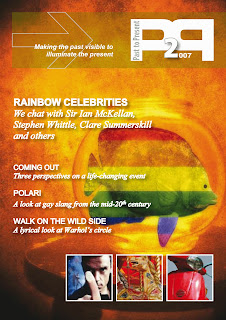The date of 17th May was specifically chosen to commemorate the World Health Organization’s decision in 1990 to declassify homosexuality as a mental disorder.
[http://www.euro.who.int/en/what-we-do/health-topics/communicable-diseases/hivaids/news/news/2011/5/stop-discrimination-against-homosexual-men-and-women]
IDAHO is now celebrated in more than 100 countries, in all world regions and in places as diverse as Australia, Iran, Cameroon or Albania. It has received official recognition from several States and such international institutions as the European Parliament, and by countless local authorities. Most United Nations agencies also mark the Day with specific events.
LGBTI organisations, governments, cities, human rights organisations, corporations and celebrities have all taken action on 17th May to:
- Draw media attention to the issues of homophobia, biphobia and transphobia
- Organise events which mobilise public opinion
- Demand attention from policymakers and engage in lobbying activities
- Network with like-minded organisations and develop new partnerships, at home or beyond
- Mobilise existing constituencies and address new audiences
In 75 countries around the world, loving someone of the same sex is still considered illegal, at times involving lifetime imprisonment and, in eight countries, it is punishable by death.
[http://en.wikipedia.org/wiki/Persecution_of_homosexuals#Contemporary]
And in many more countries still, citizens are denied their right to live according to their preferred gender identity.
As well as legal discrimination, social homophobia and transphobia serve to daily deny millions of people across the world their basic human dignity.
For more information:-
http://dayagainsthomophobia.org/
https://en.wikipedia.org/wiki/International_Day_Against_Homophobia,_Biphobia_and_Transphobia
The UK page for IDAHO is here:
http://www.idahouk.org/
The European Union Agency for Fundamental Rights (FRA) has just released the results of a survey of LGBT people’s experiences of discrimination, violence and harassment:
http://fra.europa.eu/en/publication/2013/eu-lgbt-survey-european-union-lesbian-gay-bisexual-and-transgender-survey-results
ILGA-Europe (the European region of the International Lesbian, Gay, Bisexual, Trans and Intersex Association) has just released their Rainbow Europe Map for 2013:
http://www.ilga-europe.org/home/publications/reports_and_other_materials/rainbow_europe
There are 'score sheets' for each country in the union:
http://www.ilga-europe.org/home/publications/reports_and_other_materials/rainbow_europe/score_sheet










